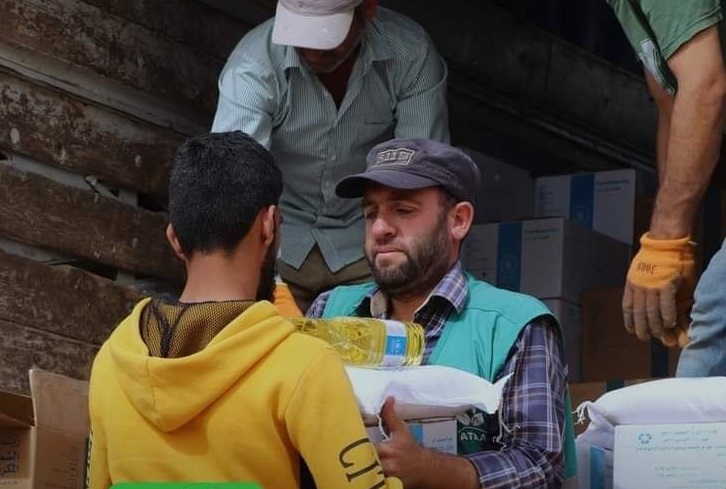Protests over aid to earthquake victims and the games between Russia, Turkey and the West
Six months after the earthquake in the devastated Syrian areas there is great concern about the future in a starving territory. The appeal to "not politicise" the management of the humanitarian emergency has fallen on deaf ears. The knot of Idlib, the last stronghold in the hands of the rebel militias opposing Bashar al-Assad.
Moscow (AsiaNews) - Scandals and protests continue in Syria linked to humanitarian aid coming from the UN, hoarded for vested interests under the cover of Russia and Turkey. Activists accuse businessmen loyal to dictator Bashar Al-Assad, who resell to starving citizens what has arrived free of charge from the rest of the world.
The Syrian government itself, supported by Moscow, expresses its opposition to the ways in which the UN distributes humanitarian aid.
The inhabitants of Syria - both those in the territories under Assad's control and those in the hands of the opposition - await with trepidation the days in which the arrivals of humanitarian cargoes will cease, with the explicit fear of dying of hunger.
The gaze of Turkish President Recep Tayyip Erdogan extends across all of this, as he has long learned to take advantage of any apocalyptic turning point in local and global politics.
The issue has been discussed for several months, since the earthquake that shook the southern regions of Turkey and the north-eastern regions of Syria. The attention of the whole world has rightly focused on Turkey, with the evidence of its tragedy and the ruins of its cities filmed by the cameras of every news agency. For various reasons, however, Syria, which has been subjected to systematic destruction for over a decade, has not attracted equal interest.
According to UN data, even before the earthquake in Syria at least 15 million people (about 70% of the population) needed humanitarian aid, and now this need extends to almost all of the inhabitants.
Already in February the special representative for Syria, the Norwegian Geir Otto Pedersen, had called for "not to politicize the deliveries of humanitarian aid", rather helping to "distribute it as soon as possible to all Syrians".
The political question instead prevails over the humanitarian one, considering that the current regime, supported by Russia and Iran, controls 80% of the country, while the Idlib region in the north-western area remains an impregnable fortress for Assad.
It was precisely following Russia's intervention that it was proposed to all opponents, Islamists and otherwise, to take refuge through the "safe corridor" of Idlib, complete with a green bus service to go towards the de-escalation enclave at border with Turkey, where 3 million people currently live, mostly women and children.
Russia probably believed it would be relatively easy to settle accounts with the insurgents, gathered in one area and not scattered throughout Syria. Instead, the opposite happened, also because Turkey got its hands on Idlib, with which both the remaining ISIS militias and Assad's other adversaries now collaborate.
In this way, Erdogan ensures surveillance of the Russian bases on the Mediterranean side, and keeps the Syrian Kurds at bay on the other side, who would like to reach the proclamation of an autonomous region together with their brothers on the Turkish side with American support. Imperial ambitions from all over the world collide in Syria, and the starving population pays the price.
The UN has supported the Idlib enclave for years, passing humanitarian cargoes from Turkey through the Bab Al-Hawa crossing as part of the so-called "cross-border mechanism", which does not require approval from Damascus. This system has been renewed every nine months by the Security Council, despite total opposition from Russia, while other aid arrives via Lebanon under government control.
After the earthquake, the USA and the EU, while maintaining sanctions on Syria in force, to meet the needs of the population in the midst of the ruins, inserted a clause which facilitates the transfer of humanitarian aid for aid organisations, even if a part some packages marked not for sale ended up on store shelves. Now the "earthquake discount" has expired, and the power games risk becoming increasingly ambitious and radical, at the expense of poor Syrians.
04/02/2020 12:06
09/08/2021 14:38







.png)










